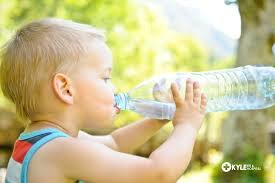Discovering the Essence of Detox Drinks
People eagerly turn to detox drinks as a modern remedy to flush out toxins and rejuvenate their bodies. These beverages typically combine water with an assortment of ingredients such as citrus fruits, leafy greens, or herbal extracts, marketed as powerful cleansers for internal systems. Popular blends include apple-cinnamon infusions or spirulina smoothies, often promoted by wellness gurus on platforms like Instagram for their supposed ability to enhance energy and clarity. Retailers capitalize on this trend, stocking shelves with ready-made options alongside DIY recipes.
However, the concept draws from ancient medicinal practices, now transformed into a commercial wellness craze. Transitioning to the present, social media amplifies their popularity with striking visuals and bold claims, enticing consumers seeking quick health fixes. Individuals adopt them after festive seasons or stressful periods, hoping for a reset without major lifestyle shifts. Beneath the allure, though, lies a need to investigate whether these drinks truly deliver on their promises.
Exploring the Body’s Natural Detox Arsenal
Your body tirelessly conducts detoxification through a well-orchestrated system of organs. The liver breaks down harmful substances into excretable forms, while the kidneys filter waste from the blood, releasing it through urine. Additionally, the skin expels toxins via sweat during physical activity, and the lungs purge impurities with each breath. This intricate network operates continuously, adapting to daily challenges from diet and environment.
Furthermore, the digestive system contributes by processing nutrients and eliminating residues efficiently. Transitioning to lifestyle influences, proper hydration and rest optimize these natural processes. Scientists confirm that this built-in mechanism handles toxins adeptly, raising questions about the necessity of external detox aids. In active operation, your body maintains a delicate balance, showcasing its remarkable self-sufficiency.
Evaluating the Science Behind Detox Claims
Researchers diligently probe the effectiveness of detox drinks, yet studies reveal minimal evidence supporting their toxin-removal assertions. A 2019 review in the British Journal of Nutrition finds no significant advantage over plain water in detoxifying the body. Moreover, clinical data indicates that any weight loss results from water loss rather than fat reduction, with effects disappearing post-regimen. Experts attribute perceived benefits to placebo responses or increased fluid intake.
Additionally, analyses of ingredients like turmeric or parsley show antioxidant properties but no unique detoxifying action beyond whole foods. Transitioning to expert perspectives, health organizations caution against unverified claims due to insufficient rigorous trials. Furthermore, a 2021 study on cleanse diets highlights temporary bloating relief but no lasting health improvements. In active pursuit of truth, the scientific community encourages skepticism toward marketed miracles.
Shattering Detox Drink Misconceptions
Marketers aggressively push the notion that detox drinks eliminate all toxins in a matter of days, but evidence refutes this. A prevalent misconception claims they boost metabolism for weight loss, yet no studies confirm sustained fat reduction beyond initial water shedding. Another fallacy suggests they heal chronic ailments, a claim health experts actively debunk as baseless. Consumers often miss that these outcomes mirror basic hydration benefits.
Moreover, the belief that detox drinks surpass a balanced diet in cleansing lacks support. Transitioning to factual insights, authorities note that over-reliance may lead to nutrient deficiencies or digestive discomfort. Professionals actively dispel these myths, advocating for evidence-based approaches over trendy solutions. This clarity equips individuals to avoid wasting resources on unproven products.
Assessing Benefits and Risks of Detox Regimens
Detox drinks actively provide some benefits by promoting higher water intake, which supports kidney function and skin hydration. Ingredients like blueberries offer antioxidants, potentially reducing oxidative stress when included regularly. Additionally, herbs such as chamomile may soothe digestion mildly, enhancing the drinking experience. These modest gains make them appealing as tasty hydration alternatives.
However, hazards emerge when people substitute meals with these beverages, risking caloric deficits or electrolyte imbalances. For example, extended juice cleanses can trigger blood sugar spikes, particularly for those with diabetes. Transitioning to safety concerns, excessive use might strain kidneys or cause nausea. Health experts actively recommend moderation, noting that benefits rarely exceed those from a diverse diet. Balancing these elements ensures a safer wellness journey.
Adopting Holistic Alternatives for Genuine Health
Individuals actively embrace whole-food diets to support natural detoxification more effectively than any drink. Consuming a range of vegetables, fruits, and whole grains nourishes organs like the liver and kidneys naturally. Moreover, engaging in regular exercise boosts circulation and sweating, aiding waste elimination. This approach outshines short-lived detox trends by fostering enduring vitality.
Additionally, herbal teas without additives deliver gentle hydration benefits, aligning with some detox goals without risks. Transitioning to personalized care, consulting a dietitian crafts plans suited to individual needs. For those curious about does detox drinks work, credible resources offer insights into evidence-based strategies. Ultimately, these practices build resilience, surpassing temporary fixes with lasting wellness.
Charting a Wise Course Through Detox Trends
Trends shift as consumers demand accountability, prompting brands to align with scientific principles rather than hype. Researchers actively investigate natural compounds’ health roles, though conclusive evidence for detox drinks remains scarce. Furthermore, growing awareness steers focus toward comprehensive wellness practices. This evolution guides individuals away from unverified elixirs.
However, challenges linger with unregulated products flooding markets, risking misleading claims. Transitioning to solutions, educational efforts highlight evidence, encouraging balanced lifestyles. In active pursuit of health, people prioritize sustainable habits over quick fixes. This forward-looking stance cultivates authentic well-being, navigating the detox landscape with informed confidence.







